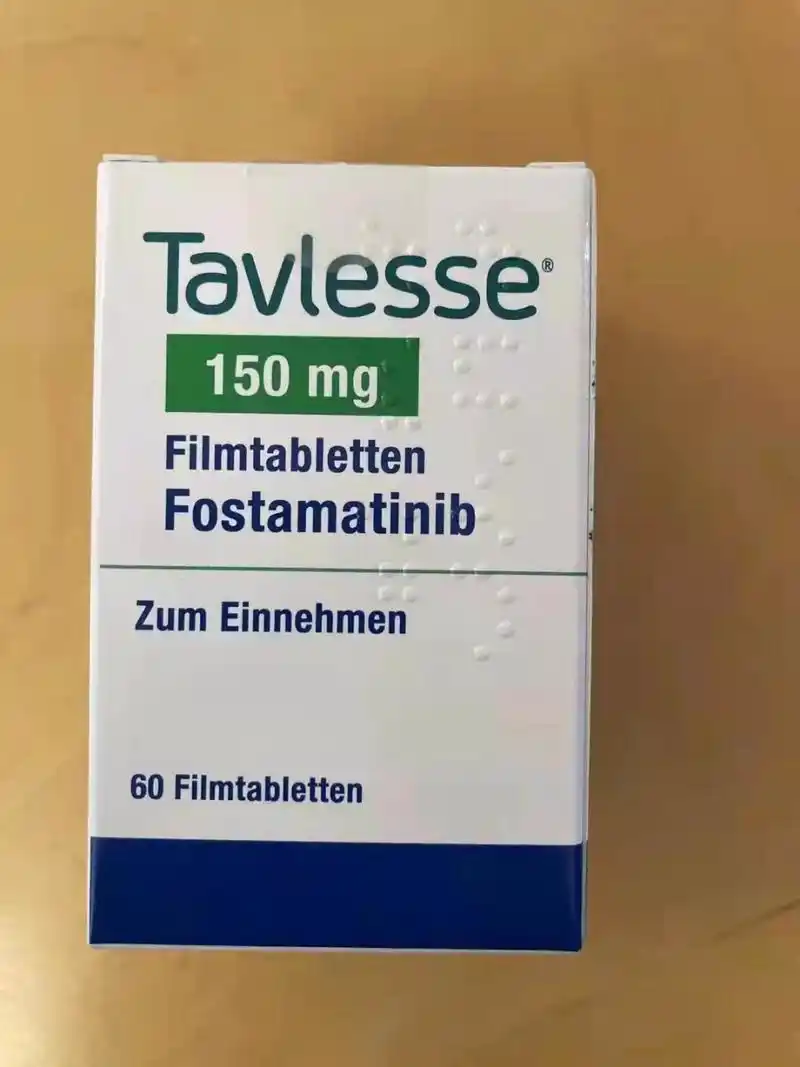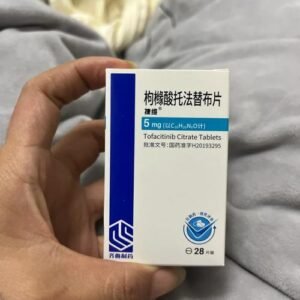Fostamatinib 福坦替尼
Fostamatinib is an oral spleen tyrosine kinase (SYK) inhibitor primarily used to treat immune-related diseases such as immune thrombocytopenia (ITP). It inhibits overactive signaling pathways in the immune system, reducing platelet destruction and thereby increasing platelet counts. Use strictly according to your doctor’s instructions and monitor for potential side effects.
I. Indications and Mechanism of Action
Indications:
Primarily used as a second-line treatment for chronic immune thrombocytopenia (ITP) in adults, it is indicated for patients who have failed or relapsed after first-line treatment with glucocorticoids and immunoglobulins.
Potential efficacy is being explored in other autoimmune diseases, such as rheumatoid arthritis and lupus.
Mechanism of Action:
Inhibits SYK kinase activity, blocking the abnormal activation of immune cells (such as macrophages), thereby reducing the misidentification and destruction of platelets.
II. Usage and Precautions
Dosage and Administration:
The typical starting dose is 100 mg twice daily, taken with meals. Adjust the dose based on efficacy and tolerability.
Follow your doctor’s instructions and do not increase or decrease the dose or discontinue the drug on your own.
Side Effects:
Common side effects include diarrhea, hypertension, nausea, and abnormal liver function.
Serious side effects may include increased risk of infection, bleeding tendency, or allergic reactions, requiring immediate medical attention.
III. Contraindications and Monitoring
Contraindications:
Foltantinib is contraindicated in patients with allergies to its components, pregnant or breastfeeding women, and those with severe hepatic or renal impairment.
Monitoring Requirements:
Regularly monitor blood pressure, liver function, platelet count, and signs of infection during treatment.
Be aware of the risk of bleeding when used in combination with anticoagulants or nonsteroidal anti-inflammatory drugs.
IV. Clinical Use and Patient Guidance
Efficacy Data: Clinical trials have shown that approximately 18% of patients with ITP achieve a stable platelet count increase after treatment with fotantinib.
Medical Instructions: A thorough medical history should be evaluated before starting medication. If chest pain, difficulty breathing, or severe rash occurs during treatment, discontinue medication immediately and seek medical attention.
Fentanib is a prescription drug and should be used under the guidance of a qualified physician. Patients should not purchase medication or change their treatment plan on their own.
See more
Share:
Products
Our offers
Health Classification
Let us work together to protect precious health




























